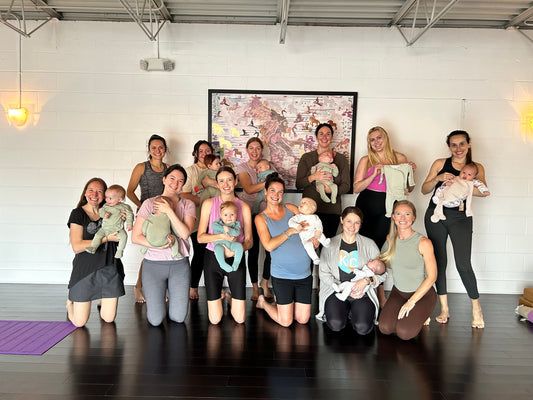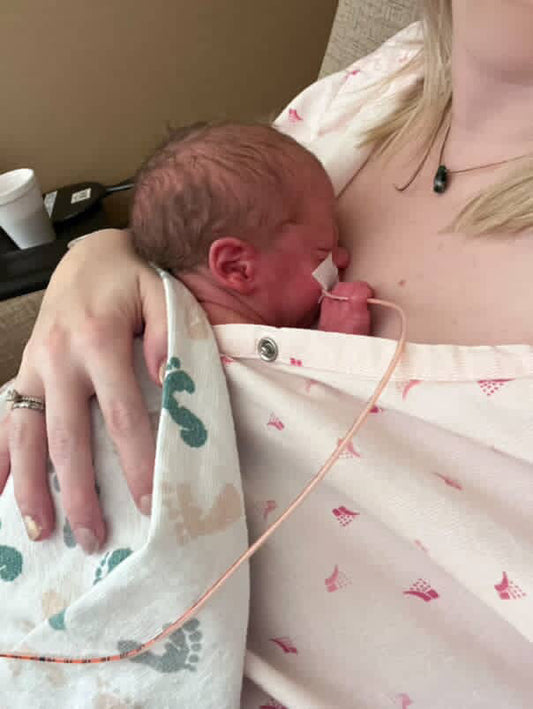Share
Iben Sandahl and The Danish Way of Parenting - New Mom Edition!
Amritpal SinghWhy are Danes repeatedly voted the happiest people in the world?
Jessica Joelle Alexander and Iben Dissing Sandahl examined the parenting style in Denmark to figure out exactly what makes Danes so happy. Then, they compiled their findings and their own experiences into a book that we can’t get enough of: The Danish Way of Parenting: What the Happiest People in the World Know About Raising Confident, Capable Kids.
Jessica is an American author who moved to Europe with her Danish husband and kids. Iben is a licensed psychotherapist and family counselor in Denmark. Both authors are devoted to helping others learn more about the Danish way in an effort to boost happiness around the world.
Bonsie firmly believes that the happiness of society and its mothers is deeply intertwined.

Photograph by Quincey Carroll
There are six essential principles to parenting strategies in Denmark that are discussed in the book:
“Play is essential for development and well-being.
Authenticity fosters trust and an 'inner compass.'
Reframing helps kids cope with setbacks and look on the bright side.
Empathy allows us to act with kindness toward others.
No ultimatums means no power struggles, lines in the sand, or resentment.
Togetherness is a way to celebrate family time, on special occasions and every day. The Danes call this hygge-and it's a simple yet meaningful way to foster a close bond.”
We were so inspired by this compelling book that we reached out to Iben for her perspective on new motherhood.
You don’t want to miss this interview with Iben!

Iben Dissing Sandahl - Photograph by Julie Sandahl
How is the happiness of new moms (their emotional, physical, and mental health) crucial to the overall happiness of society?
“It is clear that if the general well-being is good, moms have more energy to care for their children. When children are seen, heard, and recognized with parents present, they thrive and come easier through childhood and adolescence. The trick is to take good care of them already from before they give birth so that they find a healthy balance in life, where they can master the parental role and contribute to society's norms and conditions."
"People in balance and well-being cost society nothing but good."
"If this changes, the downward spiral begins to leave its mark, creating insecurity and instability that can have severe consequences.”
How can our society better support new moms in a similar way that they are supported in Denmark?
“In Denmark, the public health nurse offers all parents to participate in parenting groups immediately after birth. She puts these groups together in our local area and initiates the first group meeting. From there, it is up to the parents to arrange weekly meetings in private homes for as long as they wish. Such groups are significant for first-time parents, as uncertainties, doubts, fears, and joys are shared in the group, which gives a feeling of not being alone, but also provides answers to questions and normalizes everyday life with a baby when you see that others deal with similar challenges as yourself.
And it may also be relevant to look at maternity leave so there is no pressure to return to the labor market quickly. In Denmark, both parents are included in the maternity period.”

Photograph by Quincey Carroll.
What can new moms do to model parenting strategies in Denmark?
“It is important, up to the child's birth, to talk to your partner about expectations of yourself and the other. We often have unrealistic notions of how it should be with a newborn child. Therefore, one may be disappointed and confused when the reality turns out to be anything other than pure happiness. During the postpartum period, a Danish take will be to let go of the idea of being able to master everyday chores to perfection."
"Leave the laundry and focus on getting to know your child, get out in the fresh air with the pram, accept the mixed feelings that come and go and communicate honestly with your partner about how you feel. Take the time you need at the pace you need.”
Additional resources to learn more about The Danish Way of Parenting:
Share
-
Category:
- All posts


